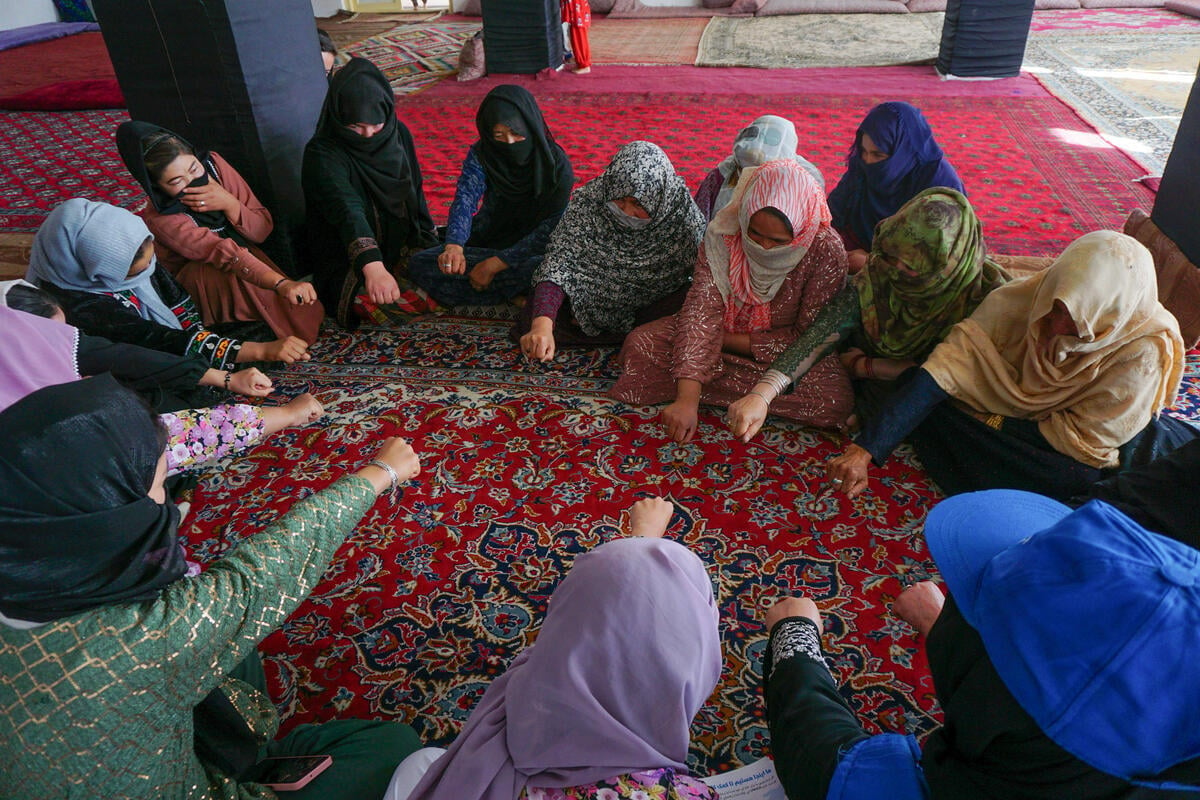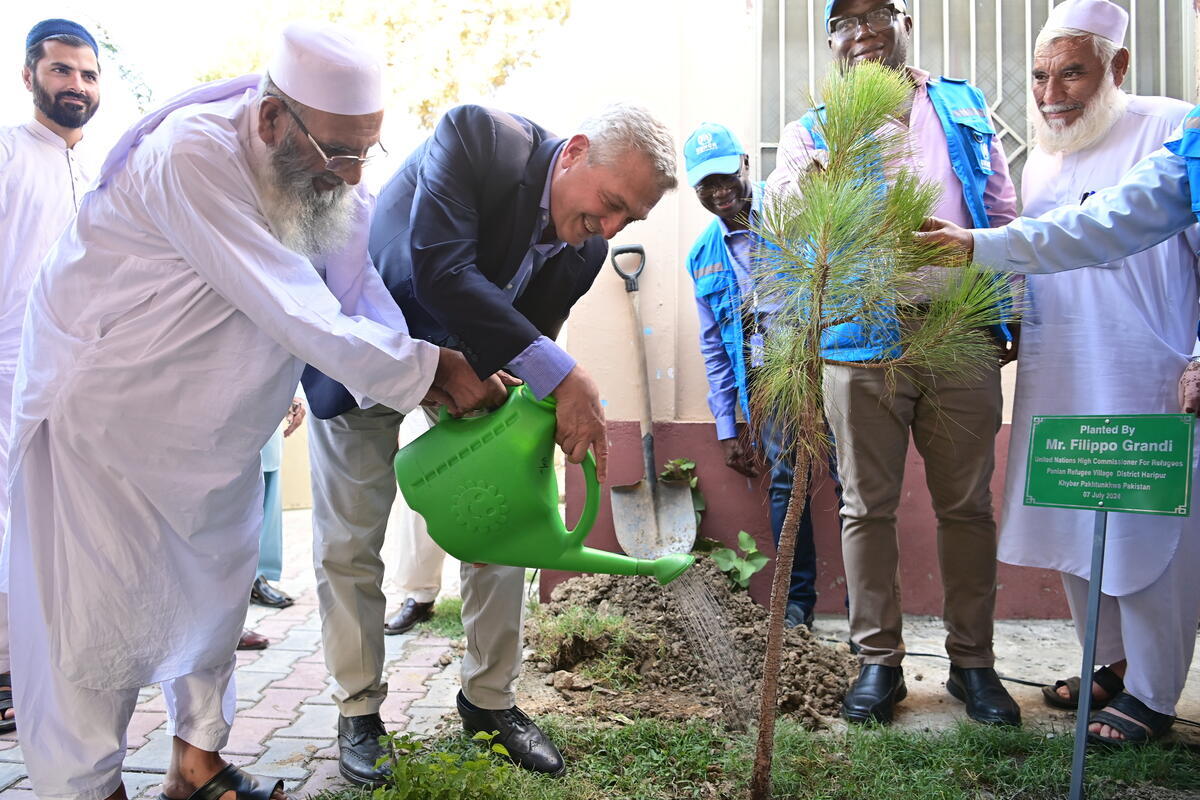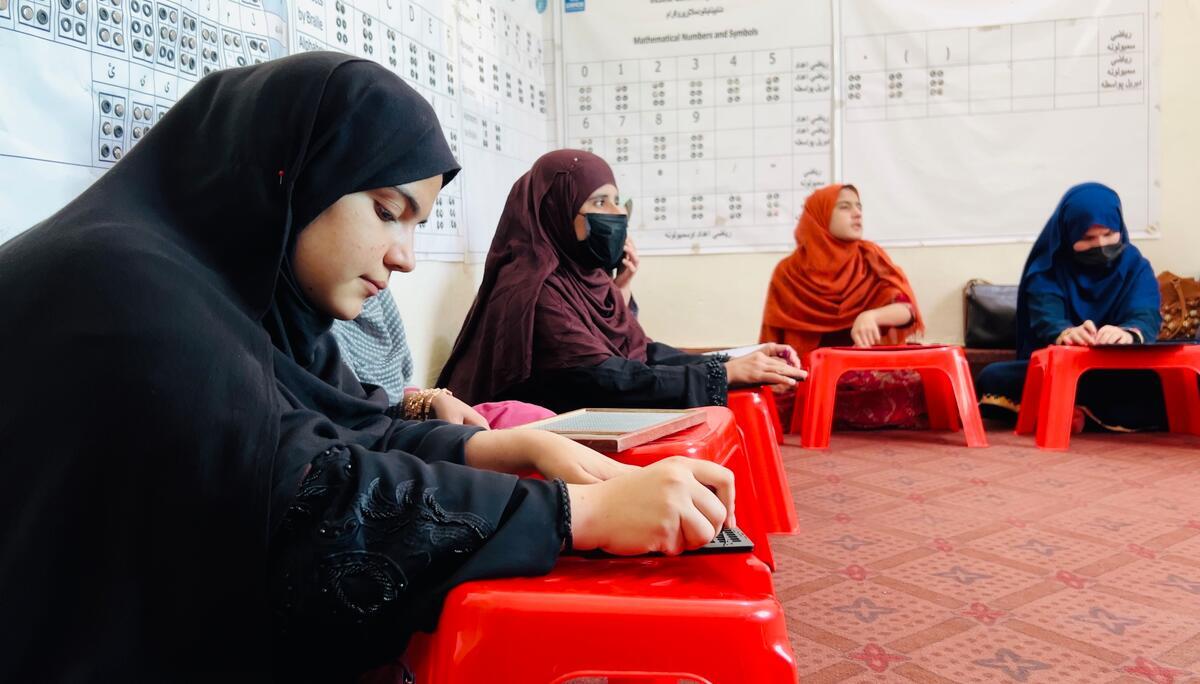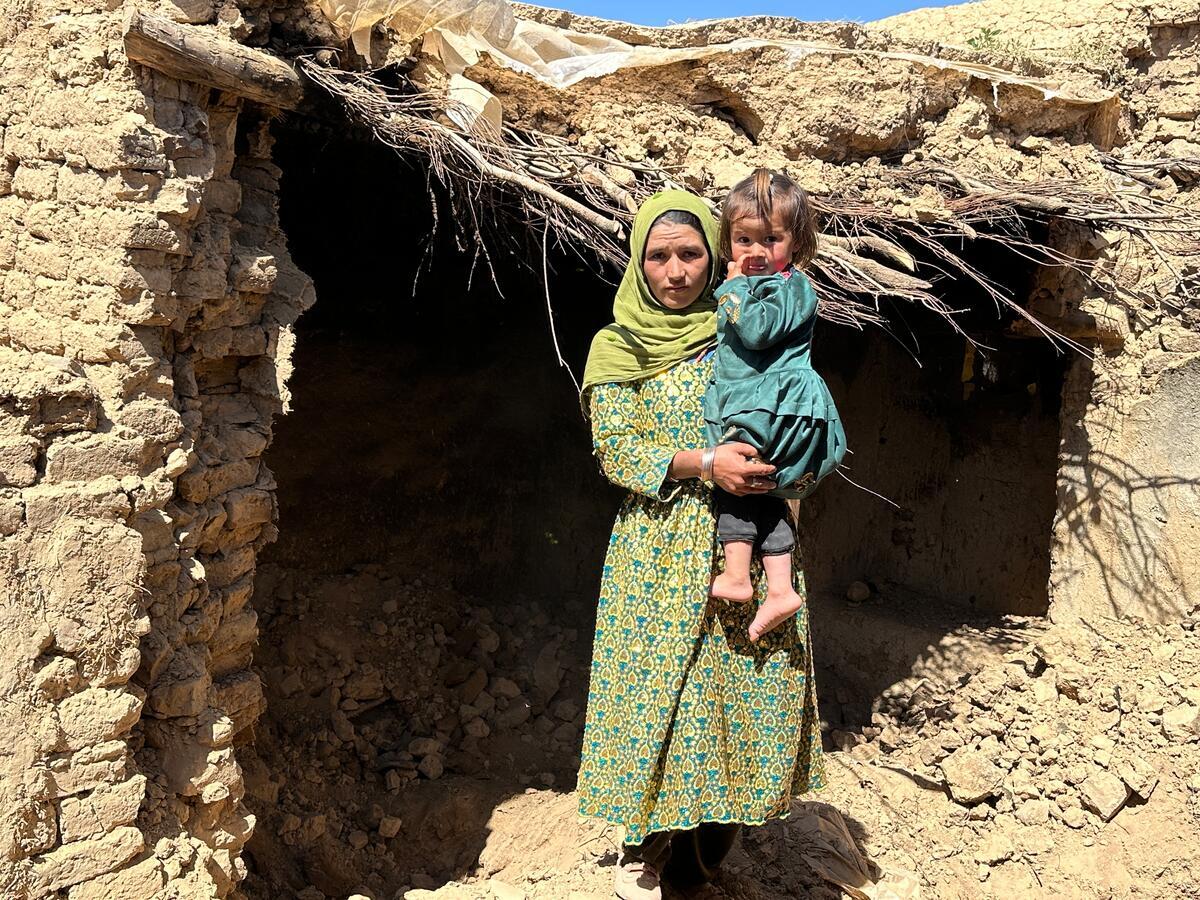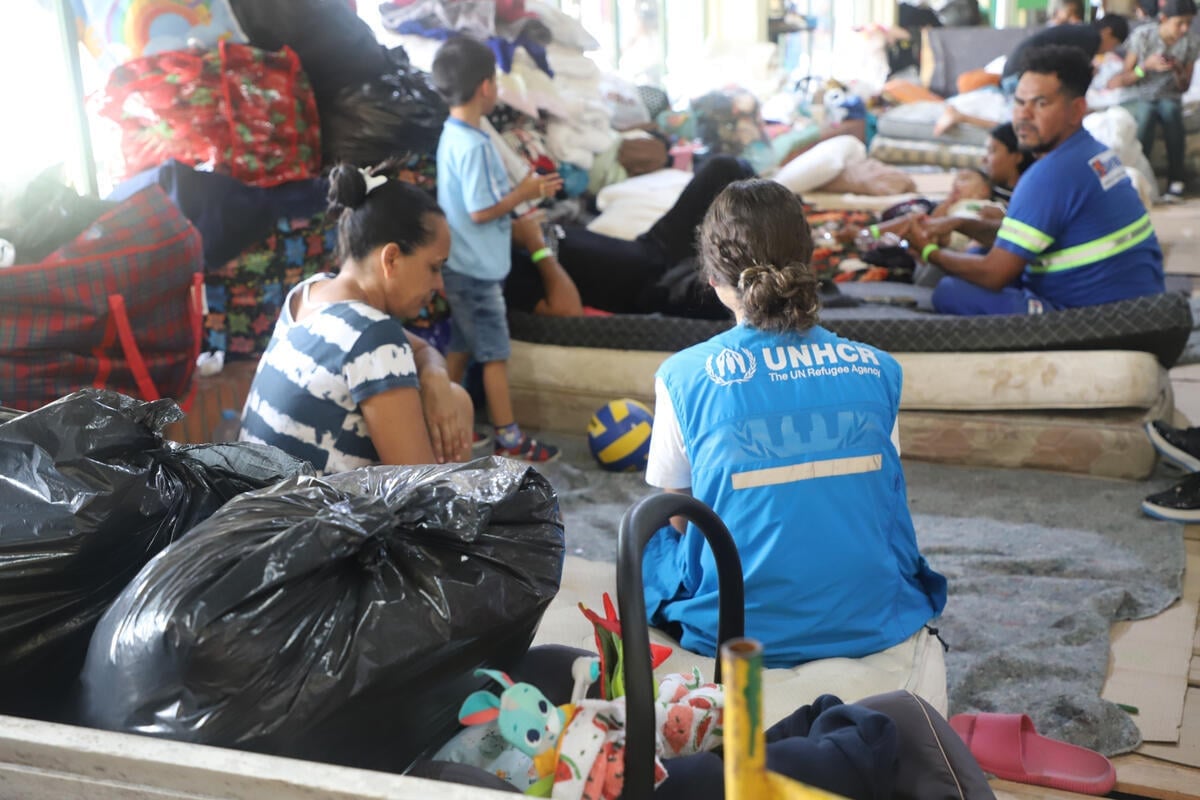Afghanistan Humanitarian Update No. 41
Afghanistan Humanitarian Update No. 41
At a Glance:
- More than 1,500 people return to Kabul
- First UNHCR relief convoy arrives in Kabul
- Pakistan authorities halt registration of new refugees
- Increasing number of people relocating out of Jalozai
- Fewer Afghans arriving in north-western Pakistan
- More supplies on the way to Iran
More than 1,500 people return to Kabul
Inside Afghanistan, UNHCR is monitoring the four main entry points into Kabul. Due to the relative stability of Kabul, more than 1,500 people returned to the city over the weekend. Most of those returning had fled during the bombing to nearby provinces and decided to return before the winter.
UNHCR staff report that a sense of relative normalcy has returned to Kabul. During the day, the streets are busy and most commodities are available in the markets. After sunset however, the streets are empty and a curfew is imposed.
Some Afghans are also leaving Kabul, returning to their homes in the Shomali Plains between Kabul and the Panjshir Valley. During the years of civil war in Afghanistan, most of the inhabitants of the Shomali Plains had fled either into the Panjshir Valley or to Kabul. Given the relative peace and stability at present, a number are now returning to this heavily damaged area.
First UNHCR relief convoy arrives in Kabul
The first UNHCR relief convoy from Peshawar arrived in Kabul on Sunday. The convoy brought in humanitarian assistance - including tents, blankets, plastic sheeting and jerry cans - for 10,000 people.
UNHCR's distribution of a winterization package (charcoal, stoves, quilts, blankets, plastic sheeting, winter clothing) to some 10,000 affected Afghans in Kabul, which started last week, will be concluded by the end of November.
At the same time, UNHCR with the support of NGOs will provide winterization packages and other relief items to a further 10,000 displaced people in the provinces neighbouring Kabul who are not likely to return to their homes before the end of winter.
Pakistan authorities halt registration of new refugees
UNHCR is increasingly alarmed by the humanitarian situation on the Pakistan-Afghanistan border at Chaman following a decision by Pakistani authorities on Monday to halt pre-registration of new Afghan refugees. Around 2,000 people are currently stuck outside UNHCR's Killi Faizo staging site and will have to spend the night in the open, despite the sharp drops in temperature overnight. UNHCR is in contact with the Pakistani authorities at the federal government level, trying to persuade them to reverse the decision. The decision to stop the registration altogether comes two days after the Pakistani authorities barred registration of males between 20 and 40 years of age.
UNHCR is particularly alarmed since over the past few days more and more malnourished children were spotted among the refugees arriving from Afghanistan, in a clear indication that people arriving now are in increasingly poor shape. On Sunday, four malnourished children were rushed to the local hospital, and today (Monday) another child had to be hospitalized.
On Monday, a total of 1,645 persons were transferred from the Killi Faizo staging site to Roghani, bringing the population of the Roghani camp to almost 9,500 people. However, the space freed up at Killi Faizo cannot be used since UNHCR is now not allowed to register those waiting outside.
UNHCR appreciates the concerns of the Pakistani authorities about a possible security risk posed by the arrival of Afghan refugees in the context of the tense situation in Afghanistan's Kandahar Province and nervousness surrounding a possible arrival in Pakistan of Taliban fighters. At the same time, we must insist that people fleeing Afghanistan be allowed in and supplied with basic aid.
Increasing number of people relocating out of Jalozai
An increasing number of refugees are volunteering to relocate from the makeshift Jalozai site near Peshawar to Kotkai camp in Bajuar Agency in north-western Pakistan. Monday, a convoy of eight buses ferried another 544 refugees to Kotkai, bringing the total number of transfers from Jalozai to Kotkai to 3,300 people.
Three other camps are under preparation in Kurram Agency for the relocation of minority groups living in Jalozai and urban refugees living in and around the city of Peshawar. This relocation is planned to begin early next week.
Fewer Afghans arriving in north-western Pakistan
The number of people crossing the border into Pakistan's North-West Frontier Province has dropped from a daily rate of 4,500 people to 1,000 since the fall of Kabul and Jalalabad. At the same time, the movement of Afghans from Pakistan to Afghanistan at the Torkham border crossing point has reached 2,500 persons a day - a record high in recent times. It is unclear how many of these people are returning refugees.
More supplies on the way to Iran
In Iran, UNHCR on Monday was expecting air delivery of water equipment from the United Kingdom as part of the agency's efforts to build up stocks for contingency inside Iran as well as for cross-border operations into Afghanistan. The water equipment includes 10 water pumps and 10 collapsible, 2,000-litre water tanks and accessories.
Some 2,000 tents aboard three flights are also expected in the north-eastern city of Mashad from Lahore, Pakistan, in the coming days. The tents are in addition to some 8,000 tents, which have arrived in the Iranian port city of Bandar Abbas and are awaiting customs clearance. The water equipment and tents are part of a consignment of relief supplies meant for contingency in locations along Iran's border with Afghanistan.
Meanwhile, a UN security assessment team was this morning waiting at the border crossing at Dogharoun for clearance from Iranian authorities to enable them to proceed with an evaluation of security in the western Afghanistan town of Herat and surrounding areas. UNHCR and other UN organisations await the outcome of the security mission to decide on the deployment of international staff into western Afghanistan.
Many Afghan refugees in Iran are likely to return to areas of western Afghanistan under a planned large-scale organised repatriation expected to begin in early spring 2002. UNHCR's main priorities in western Afghanistan include the re-activation of quick impact projects and other rehabilitation activities aimed at stabilising returning populations.
In other developments, aid workers operating in the two displaced persons camps just inside Afghanistan's south-western border with Iran - Makaki and Mile 46 - have expressed their concerns over the health situation in Mile 46 where they fear an outbreak of measles. Health workers say there are reports of an outbreak of measles in the Iranian border town of Zabol which has prompted them to begin a vaccination campaign in the two camps said to hold an estimated 10,000 displaced Afghans.


